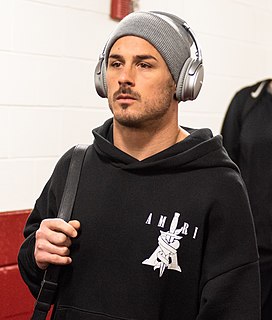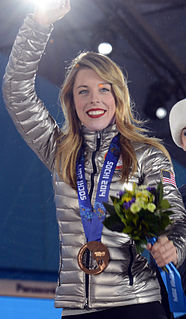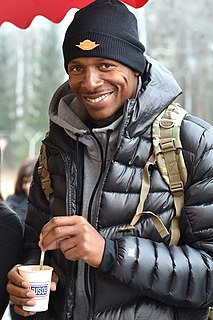A Quote by Gylfi Sigurdsson
Genetically I think I'm more equipped for long distances than high-intensity sprints.
Quote Topics
Related Quotes
You can be born gay, but not because of your genetics, I think because of your subconscious more than your genetics. I think genetically, we're made to reproduce. We can't survive this route. Genetically, that's the way to go. Genetically, we have to reproduce, but subconsciously, and preferentially, you can be born with that.
A novel is like a long relationship and a short story is a brief one that lingers - it lingers powerfully and maybe more powerfully. I think that's true in a lot of cases, most long-term relationships compared to some of the briefer ones - the intensity of those brief ones that end, I think a short story is kind of like that. There's a certain level of intensity that I think is different.
Intensity is a mental attitude more than a physical attitude. Many people misunderstand what intensity means. They think it means straining and sweating. No! That is a wrong meaning of the word! Intensity is to get totally involved, fully immersed and absorbed in what one is doing. Intense practice means a fast and keen mode in adjusting, correcting, and progressively proceeding.
Long practise in driving a racing car at a hundred miles an hour or so gives first-class training in control and judging distances at high speed and helps tremendously in getting motor sense, which is rather the feel of your engine than the sound of it, a thing you get through your bones and nerves rather than simply your ears.
We're all like the little sailor. From the harbors we hear the strains of accordions and the murky soapy noises of the docks, from the mountains we receive the dish of silence that the shepherds eat, but we don't hear more than our own distances. And what distances without end and without doors and without mountains!






































